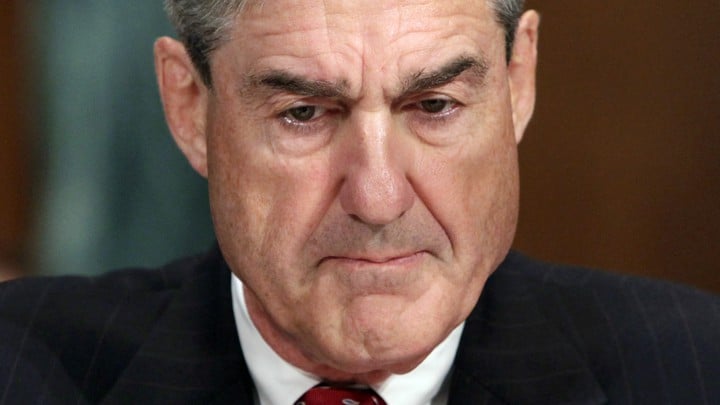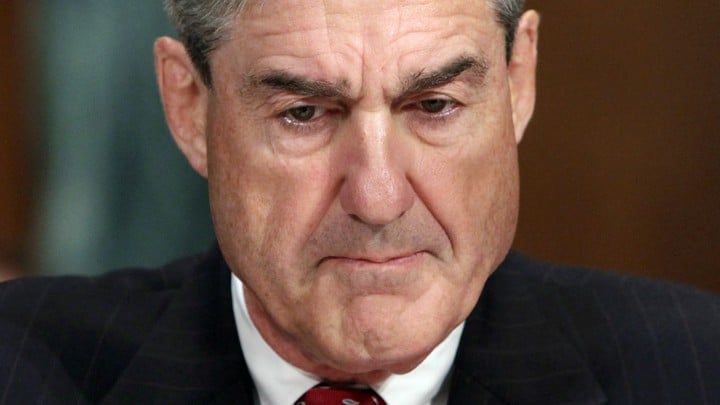In the criminal case against alleged Russian operatives – Internet Research Agency and Concord Management and Consulting LLC – a Federal judge has declared that Robert Mueller has not offered one piece of solid evidence that these defendants were involved in any way with the Government of Russia. I think this is a potential game changer.
The world of law as opposed to the world of intelligence is as different as Mercury and Mars. The intelligence community aka IC can traffic in rumor and speculation. IC “solid” intelligence may be nothing more than the strident assertion of a source who lacks actual first hand knowledge of an event. The legal world does not enjoy that kind of sloppiness. If a prosecutor makes a claim, i.e., Jack shot Jill, then said prosecutor must show that Jack owned a firearm that matches the bullets recovered from Jill’s body. Then the prosecutor needs to show that Jack was with Jill when the shooting took place and that forensic evidence recovered from Jack showed he had fired a firearm. Keep this distinction in mind as you consider what has transpired in the case against the Internet Research Agency and Concord Management and Consulting.
To understand why Judge Friedrich ruled as he did you must understand Local Rule 57.7. That rule:
restricts public dissemination of information by attorneys involved in criminal cases where ‘there is a reasonable likelihood that such dissemination will interfere with a fair trial or otherwise prejudice the administration of justice.’ It also authorizes the court ‘[i]n a widely publicized or sensational criminal case’ to issue a special order governing extrajudicial statements and other matters designed to limit publicity that might interfere with the conduct of a fair trial. . . . The rule prohibits lawyers associated with the prosecution or defense from publishing, between the time of the indictment and the commencement of trial, ‘[a]ny opinion as to the accused’s guilt or innocence or as to the merits of the case or the evidence in the case.’
In short, the US Government cannot come out and declare that Concord Management, for example, was acting on behalf or or in collaboration with the Russian Government without presenting actual evidence. A prosecutor cannot simply claim that Concord is a Putin Stooge.
The lawyers for Concord Management read the Mueller report and noted significant discrepancies between what was alleged in the original complaint and what was asserted as “fact” in the Mueller report.
On April 25, 2019, Concord filed the instant motion in which it argues that the Attorney General and Special Counsel violated Local Rule 57.7 by releasing information to the public that was not contained in the indictment. Concord’s main contention is that the Special Counsel’s Report, as released to the public, and the Attorney General’s related public statements improperly suggested a link between the defendants and the Russian government and expressed an opinion about the defendants’ guilt and the evidence against them.
Concord’s lawyers wanted Judge Friedrich to find Robert Mueller and Attorney General Barr in contempt for violating rule 57.7.
Judge Friedrich gave Concord a partial victory:
Although the Court agrees that the government violated Rule 57.7, it disagrees that contempt proceedings are an appropriate response to that violation. Instead, the Court has entered an order limiting public statements about this case moving forward and cautions the government that any future violations of that order will trigger a range of potential sanctions.
But the Judge did not stop there. He pointed out some glaring discrepancies between the Mueller Report and the actual indictment:
The Special Counsel Report describes efforts by the Russian government to interfere with the 2016 presidential election. . . . But the indictment . . . does not link the defendants to the Russian government. Save for a single allegation that Concord and Concord Catering had several ‘government contracts’ (with no further elaboration), id. ¶ 11, the indictment alleges only private conduct by private actors.
. . . the concluding paragraph of the section of the [Mueller] Report related to Concord states that the Special Counsel’s ‘investigation established that Russia interfered in the 2016 presidential election through the “active measures” social media campaign carried out by’ Concord’s co-defendant, the Internet Research Agency (IRA). By attributing IRA’s conduct to ‘Russia’ — as opposed to Russian individuals or entities — the Report suggests that the activities alleged in the indictment were undertaken on behalf of, if not at the direction of, the Russian government.
Similarly, the Attorney General drew a link between the Russian government and this case during a press conference in which he stated that ‘[t]he Special Counsel’s report outlines two main efforts by the Russian government to influence the 2016 election.’ . . . The ‘[f]irst’ involved ‘efforts by the Internet Research Agency, a Russian company with close ties to the Russian government, to sow social discord among American voters through disinformation and social media operations.’ Id. The ‘[s]econd’ involved ‘efforts by Russian military officials associated with the GRU,’ a Russian intelligence agency, to hack and leak private documents and emails from the Democratic Party and the Clinton Campaign.
The Report explains that it used the term ‘established’ whenever ‘substantial, credible evidence enabled the Office to reach a conclusion with confidence.’ . . . It then states in its conclusion that the Special Counsel’s ‘investigation established that Russia interfered in the 2016 presidential election through the “active measures” social media campaign carried out by the IRA.’ In context, this statement characterizes the evidence against the defendants as ‘substantial’ and ‘credible,’ and it provides the Special Counsel’s Office’s ‘conclusion’ about what actually occurred.
But the activities of the IRA and Concord Management are not established. In fact, Mueller’s own report undermines his claims, as noted in a recent article by Nation’s Aaron Mate. Although Mueller claims that it was “established that Russia interfered in the 2016 presidential election through the ‘active measures’ social media campaign carried out by” Concord’s co-defendant, the Internet Research Agency (IRA), he provided no such evidence. According to Mate:
After two years and $35 million, Mueller apparently failed to uncover any direct evidence linking the Prigozhin-controlled IRA’s activities to the Kremlin. His best evidence is that ‘[n]umerous media sources have reported on Prigozhin’s ties to Putin, and the two have appeared together in public photographs.’
Mate’s article, as I mentioned in a previous piece, does an excellent job of showing that the Mueller Report is based on heartfelt beliefs but devoid of corroborating evidence.
Some readers will insist that Mueller and his team have actual intelligence but cannot put that in an indictment. Well boys and girls, here is a simple truth – if you cannot produce evidence that can be presented in court then you do not have a case. There is that part of the Constitution that allows those accused of a crime to confront their accusers.
Reprinted with permission from Sic Semper Tyrannis.


